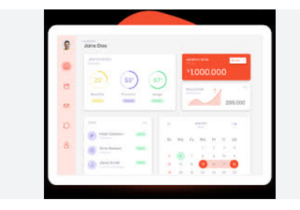Introduction
In the digital age, managing customer relationships is essential for businesses seeking sustainable growth and success. Customer Relationship Management (CRM) software has emerged as a critical tool for achieving this objective. Among the many CRM solutions available, Crust CRM stands out as a powerful, open-source CRM platform. In this article, we will explore the world of Crust CRM, its features, advantages, and how it revolutionizes customer relationship management. 
The Significance of CRM
H2: The Significance of CRM
Before diving into Crust CRM, let’s understand why CRM software is of paramount importance for modern businesses:
1. Customer-Centric Approach
CRM systems enable businesses to adopt a customer-centric approach. By collecting and organizing customer data, companies can tailor their products and services to meet customer needs effectively.
2. Streamlined Processes
CRM software streamlines and automates various business processes, such as lead management, sales, and customer support. This results in increased operational efficiency and reduced manual work.
3. Enhanced Customer Engagement
With CRM, businesses can engage with customers across multiple channels, delivering personalized experiences that foster customer loyalty and satisfaction.
4. Data-Driven Decision Making
CRM systems provide valuable insights through data analytics. These insights empower businesses to make informed decisions, track performance metrics, and identify growth opportunities.
5. Improved Collaboration
CRM software enhances collaboration among different departments, including sales, marketing, and customer support. Teams can share customer information, ensuring everyone is aligned in their efforts.
Introducing Crust CRM
H2: Introducing Crust CRM
Crust CRM is an open-source CRM platform designed to help organizations manage their customer relationships effectively. What sets Crust CRM apart is its commitment to open-source principles, allowing businesses to leverage its capabilities without the constraints of proprietary software. Here are some key features and advantages of Crust CRM:
1. Open Source Philosophy
Crust CRM follows an open-source philosophy, meaning that its source code is freely accessible and customizable. This empowers businesses to tailor the CRM system to their unique needs and requirements.
2. Contact and Lead Management
Crust CRM offers robust contact and lead management capabilities. Users can store and organize customer information, track leads, and manage interactions, all within a unified platform.
3. Sales Pipeline Visualization
The platform provides a clear visualization of the sales pipeline, enabling businesses to monitor the progress of deals, set priorities, and forecast revenue accurately.
4. Communication Tools
Crust CRM integrates communication tools such as email and chat, facilitating seamless interactions with leads and customers. This ensures that communication remains central to the CRM workflow.
5. Task Automation
The CRM platform includes task automation features, allowing businesses to automate routine tasks, set reminders, and schedule follow-ups. This improves efficiency and ensures critical actions are not overlooked.
6. Customization
Crust CRM is highly customizable. Users can adapt the CRM system to match their specific processes and workflows, ensuring that it aligns perfectly with their business operations.
7. Security and Data Privacy
Data security is a top priority for Crust CRM. The platform provides robust security features to protect sensitive customer information, ensuring compliance with data privacy regulations.
Advantages of Crust CRM
H2: Advantages of Crust CRM
Implementing Crust CRM can offer several advantages for businesses:
1. Cost Savings
As an open-source solution, Crust CRM eliminates the costs associated with proprietary CRM software. Businesses can access and customize the platform without the burden of licensing fees.
2. Customization
Crust CRM’s open-source nature allows for deep customization. Businesses can tailor the CRM system to their specific needs, ensuring it aligns perfectly with their unique processes.
3. Data Ownership
With Crust CRM, businesses retain complete ownership and control of their customer data. This is crucial for data privacy and compliance with regulations like GDPR.
4. Community Support
The open-source community actively supports and contributes to the development of Crust CRM. This ensures ongoing support, updates, and enhancements to the platform.
5. Scalability
Crust CRM is highly scalable, allowing organizations to expand their CRM capabilities seamlessly as they grow. This adaptability is essential for long-term success.
Conclusion
Crust CRM stands as a testament to the power of open-source solutions in the world of CRM. Its commitment to providing businesses with a customizable, cost-effective, and secure CRM platform has made it a compelling choice for organizations of all sizes and industries. By leveraging the advantages of Crust CRM, businesses can build stronger customer relationships, improve operational efficiency, and make data-driven decisions that drive growth. In a competitive business landscape, a customer-centric approach supported by powerful CRM software like Crust CRM can make all the difference in achieving sustainable success